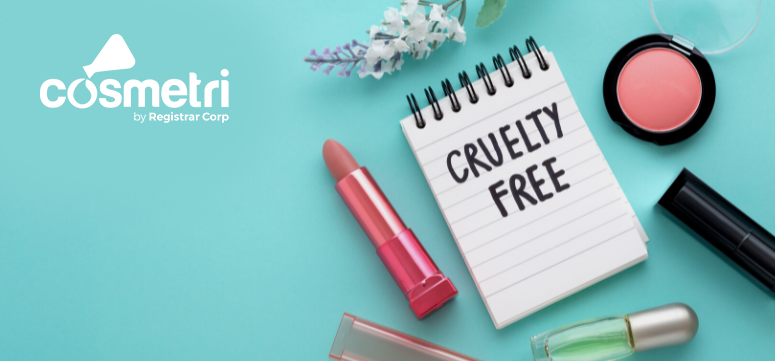Cosmetic Product Labels: How to Choose the Right One for Your Brand?
The cosmetics industry is a global powerhouse, with consumers regularly indulging in cosmetics and beauty treatments worldwide. Consumers have varying needs and expectations of their make-up and skin care products and rely on a product’s label to inform their purchasing decisions.
A cosmetic company can provide reassurance for the consumer by including a cosmetic certification, a label on a cosmetic product that certifies a certain claim made by the brand. Cosmetic certification is awarded by an authority upon testing the product on said claim.
For example, if a moisturizer claims to be vegan and cruelty-free, a cosmetic product label certifying these claims on the packaging would help establish trust with the consumer that the claims are valid.
How do You Choose Cosmetic Product Labels for Your Brand?
There are numerous cosmetic labels that can help enhance your brand. Some certifications are crucial, such as those confirming the authenticity of your product’s ingredients. Others may seem superficial but are gaining traction among consumers.
The idea is to strike a balance between cosmetic labels that help boost your products in the best way. Here are the most important aspects that will help you choose the right cosmetic label for your brand:
1. Your values
What are your brand’s values that you wish to highlight in your products? Perhaps you prioritize using natural and organically farmed ingredients in your products. Or, you may place a high value on producing sustainable or cruelty-free products.
Choosing labeling that reflects your brand’s identity and values in your products will help you stand out to consumers with similar values.
2. Your consumer’s values
As consumers grow more aware, they look for brands that match their values. Your brand will be better served by using product labels that appeal to many consumers.
For example, consumers are generally concerned about the authenticity of ingredients in skin care products. Labels that validate the quality of the ingredients in your products will help you win over customers who are seeking authentication.
Important Cosmetic Industry Product Labels
There is a wide range of cosmetic labels that authenticate the ingredients and the process of making your products. You can obtain many of these certifications through online application processes.
1. Organic
When a product is certified organic, it means that it has been organically farmed. The ingredients used in the product are not genetically modified or farmed with the use of any synthetic fertilizers. In other words, no unnatural products are included in the growing process.
However, this claim only applies to ingredients that can be farmed. Ingredients such as water or clay cannot include this label, as they are not farmed.
To obtain an organic label for your product, you’ll need to contact an organization such as the NFS[1], which can help you with testing, inspection, and certification.
2. Cruelty-free
A cruelty-free product has neither been tested on animals nor uses any ingredients that have been tested on animals. Furthermore, a cruelty-free certificate testifies that your brand's manufacturing partners also do not test on animals.
A cruelty-free certification indicates that your brand commits to not conducting, allowing, or outsourcing animal testing in any phase of your product's development process.
Cruelty-free labels are often questioned because the extent of how animals can be used in the production process varies between organizations. However, the label Leaping Bunny[2] has been widely accepted for transparency and trustworthy procedures.
3. Vegan
Vegan products do not use any ingredients that are derived from animals. To be certified vegan, the product also cannot use animal products in the manufacturing process or contain GMOs that may contain animal genes or any animal-derived substances.
Certified vegan products cannot be produced at the same location as non-vegan products. Animal testing is also prohibited in the manufacturing of cosmetics products, making them simultaneously eligible to be considered for cruelty-free certification.
You can apply the Certified Vegan Logo[3] at vegan.org. Applicants are required to include proof of their product’s vegan status during the application process. Upon certification, your product can bear the Certified Vegan Logo for a period of time. To continue displaying the logo, you’ll need to pay an annual fee, which is determined based on your company’s annual revenue.
4. Fair Trade
Fair trade refers to the process of obtaining goods in a way that promotes fair labor practices for the producers and the individuals making their products. In other words, products with fair trade certifications are those that do not exploit their manufacturers and traders in any way.
The producers of the ingredients are paid a fair price, and the laborers and manufacturers who worked on producing the product are paid a fair wage for their services. The certified brand also obeys all the labor laws established by the International Labour Organization’s conventions.
The famous Fair-Trade-International-Logo can be displayed on products worldwide upon receiving certification by the independent auditor FLOCERT[4].
5. Sustainability
Product labels regarding sustainability testify that the ingredients used in the products are harvested in a way that does not harm the environment, be it the ecosystems or the people.
This is a broad spectrum that covers many sustainable practices. For example, brands may get certified for not using any single-use plastic in their products, including containers. This is considered a sustainable practice as single-use plastic usage causes immense damage to oceans.
Similarly, companies can vow not to use palm oil in their products. Though beneficial on its own, palm oil is produced using methods that negatively impact Southeast Asia’s natural rainforests and the region’s indigenous people.
You can start the certification process for eco-labels such as Rainforest Alliance[5] online. The steps and costs that accompany certification depend on your place in the production line. Sustainability labels have some of the highest acknowledgment globally and require an intense certification process.
Organizations That Certify Cosmetic Product Labels
To get one or more of the mentioned labels, you’ll need to apply to a trusted organization that can certify the label you have chosen for your brand. Not every organization that certifies product labels is a trusted authority. Be sure to use an organization that ensures quality and is respected in broader public society.
Cosmetic product labels are a great way to boost your trustworthiness among consumers, but you must also lead by example and communicate your beliefs throughout the production process.
Need Help in Managing Your Cosmetic Product?
Cosmetri’s software boasts several features that can help you manage your products and product labels. You can easily manage the content, artwork, symbols, and list of ingredients that must appear on your product labels and packaging.
You can also fine-tune the label of ingredients, with options for international and US-only formats. Finally, all the data and files, including a full report in .pdf, .xls and .doc formats can be exported.
Request a demo to know more about Cosmetri’s software solutions.
Need Help with Cosmetic Labeling and Ingredient Review?
The FFDCA prohibits the distribution of misbranded cosmetic products. A cosmetic product is considered misbranded if its labeling claims are false or misleading, if it does not bear required information, or if the container is made or filled in a deceptive manner. Registrar Corp can review your cosmetic’s labeling for compliance with FDA regulations.
Sources
[1] https://www.nsf.org/consumer-resources/articles/organic-labeling
[2] https://www.leapingbunny.org/






